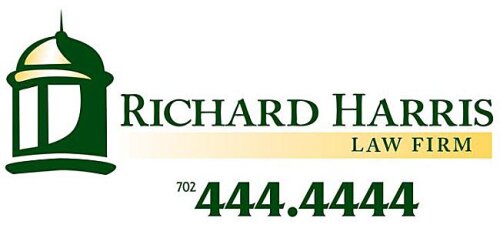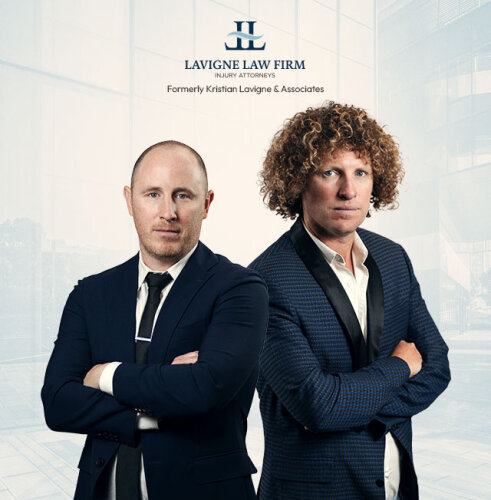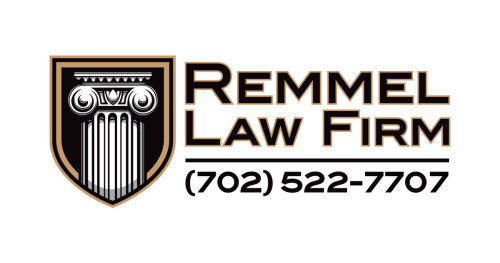Best Toxic Mold Lawyers in New Mexico
Share your needs with us, get contacted by law firms.
Free. Takes 2 min.
Or refine your search by selecting a city:
List of the best lawyers in New Mexico, United States
About Toxic Mold Law in New Mexico, United States
Toxic mold is a serious health and property concern in New Mexico, especially due to the unique climate and architectural styles in the state. Toxic mold refers to certain types of mold that can cause significant health problems or property damage when allowed to grow indoors. Legal issues arise when mold infestations are not addressed promptly or are hidden from tenants, buyers, or homeowners. The legal landscape in New Mexico regarding toxic mold is shaped by a mix of state regulations, health codes, building standards, and court decisions that establish responsibility for mold-related damages and injuries.
Why You May Need a Lawyer
You may need a lawyer in toxic mold cases for several reasons. Common scenarios include property owners disputing responsibility for mold damages, tenants facing health problems due to undisclosed or unaddressed mold, homebuyers discovering mold after a purchase, or insurance claim denials related to mold remediation. Legal help is vital in situations where landlords or sellers fail to disclose mold, property managers refuse proper remediation, insurance companies deny mold claims, or when medical issues arise due to toxic mold exposure. An experienced attorney can help you understand your rights, gather evidence, negotiate settlements, and represent you in court if necessary.
Local Laws Overview
New Mexico does not have specific statutes that directly address toxic mold or set a formal standard for acceptable indoor mold levels. However, several important legal concepts and local regulations apply:
- Landlord-Tenant Laws: Landlords must provide safe and habitable housing, which includes addressing water leaks and mold growth. Tenants can request repairs and may have rights to terminate leases or seek damages if the rental is uninhabitable.
- Disclosure Requirements: Sellers of residential property may be required to disclose known defects, including mold, but these requirements are less specific in New Mexico than in some states. Honesty in real estate transactions is still legally required.
- Building Codes: Local building codes enforce moisture control measures and proper ventilation in new construction and renovations to help prevent mold.
- Negligence and Liability: Residents can pursue claims against negligent landlords, property managers, or contractors whose failure to maintain or repair property results in mold-related damages or injury.
- Insurance: Many homeowner and renter insurance policies exclude or limit coverage for mold damage. Insurance disputes can be complex, especially regarding what is covered versus excluded.
Frequently Asked Questions
What is toxic mold and how does it affect health?
Toxic mold refers to molds, such as Stachybotrys chartarum, that produce toxins harmful to humans. Health effects can include respiratory issues, headaches, allergic reactions, and in severe cases, long-term illness.
What are my rights as a tenant if I discover mold in my rental unit?
New Mexico law requires landlords to maintain habitable premises. If you find mold, notify your landlord in writing and request repairs. If they fail to act, you may have the right to withhold rent, break the lease, or seek damages depending on the severity.
Does a home seller need to disclose the presence of toxic mold?
While New Mexico law does not require mold-specific disclosure, sellers must disclose known defects that materially affect the value or safety of the property, which can include mold.
How do I prove that mold caused my health problems or property damage?
Documentation is essential. Gather medical records, photographs, inspection reports, maintenance requests, and correspondence with property managers or landlords. Expert testimony may also be required.
Can I sue my landlord for health problems caused by mold?
If you can prove your landlord's negligence directly caused your health problems and the mold problem was not addressed, you may have grounds for a lawsuit seeking compensation for medical costs, lost wages, and pain and suffering.
What type of lawyer should I hire for a toxic mold issue?
Consider hiring an attorney who specializes in property law, personal injury, landlord-tenant law, or toxic torts, depending on your specific situation.
Does my homeowner or renters insurance cover mold damage?
Many policies exclude or limit mold damage coverage unless it was caused by a covered peril, such as sudden water damage. Review your policy and discuss particulars with your insurance provider and attorney.
What if my neighbor's property causes mold to grow on my property?
If your neighbor's negligence, such as poor drainage or leaking pipes, leads to mold on your property, you may be able to pursue a nuisance or negligence claim for damages.
How long do I have to file a lawsuit for toxic mold exposure?
New Mexico has a statute of limitations for personal injury and property damage claims, generally three years from the date of injury or discovery. Consult an attorney promptly to avoid missing deadlines.
Can employers be liable for toxic mold in the workplace?
Yes, employers are required to provide a safe work environment. Workers' compensation may cover work-related illness, and other claims may be possible if employer negligence contributed to unsafe conditions.
Additional Resources
- New Mexico Department of Health - Environmental Health Section
- New Mexico Attorney General’s Consumer Protection Division
- Local city or county housing authorities
- New Mexico Law Help - Legal aid services
- Centers for Disease Control and Prevention - Mold Resources
- National Association of Mold Remediators and Inspectors
- New Mexico Regulation and Licensing Department - Construction Industries Division
Next Steps
If you believe you have a toxic mold issue and need legal assistance, start by documenting all evidence, including photographs, inspection reports, and medical records. Notify your landlord, property manager, or seller in writing of the problem. Seek prompt medical care if you have health concerns related to mold. Consult with an attorney experienced in toxic mold, landlord-tenant, or property law in New Mexico to discuss your options. They can help you understand your rights, evaluate possible claims, and guide you through the next legal steps. You may also want to contact local health or housing authorities for additional support and information.
Lawzana helps you find the best lawyers and law firms in New Mexico through a curated and pre-screened list of qualified legal professionals. Our platform offers rankings and detailed profiles of attorneys and law firms, allowing you to compare based on practice areas, including Toxic Mold, experience, and client feedback.
Each profile includes a description of the firm's areas of practice, client reviews, team members and partners, year of establishment, spoken languages, office locations, contact information, social media presence, and any published articles or resources. Most firms on our platform speak English and are experienced in both local and international legal matters.
Get a quote from top-rated law firms in New Mexico, United States — quickly, securely, and without unnecessary hassle.
Disclaimer:
The information provided on this page is for general informational purposes only and does not constitute legal advice. While we strive to ensure the accuracy and relevance of the content, legal information may change over time, and interpretations of the law can vary. You should always consult with a qualified legal professional for advice specific to your situation.
We disclaim all liability for actions taken or not taken based on the content of this page. If you believe any information is incorrect or outdated, please contact us, and we will review and update it where appropriate.
Browse toxic mold law firms by city in New Mexico
Refine your search by selecting a city.

















